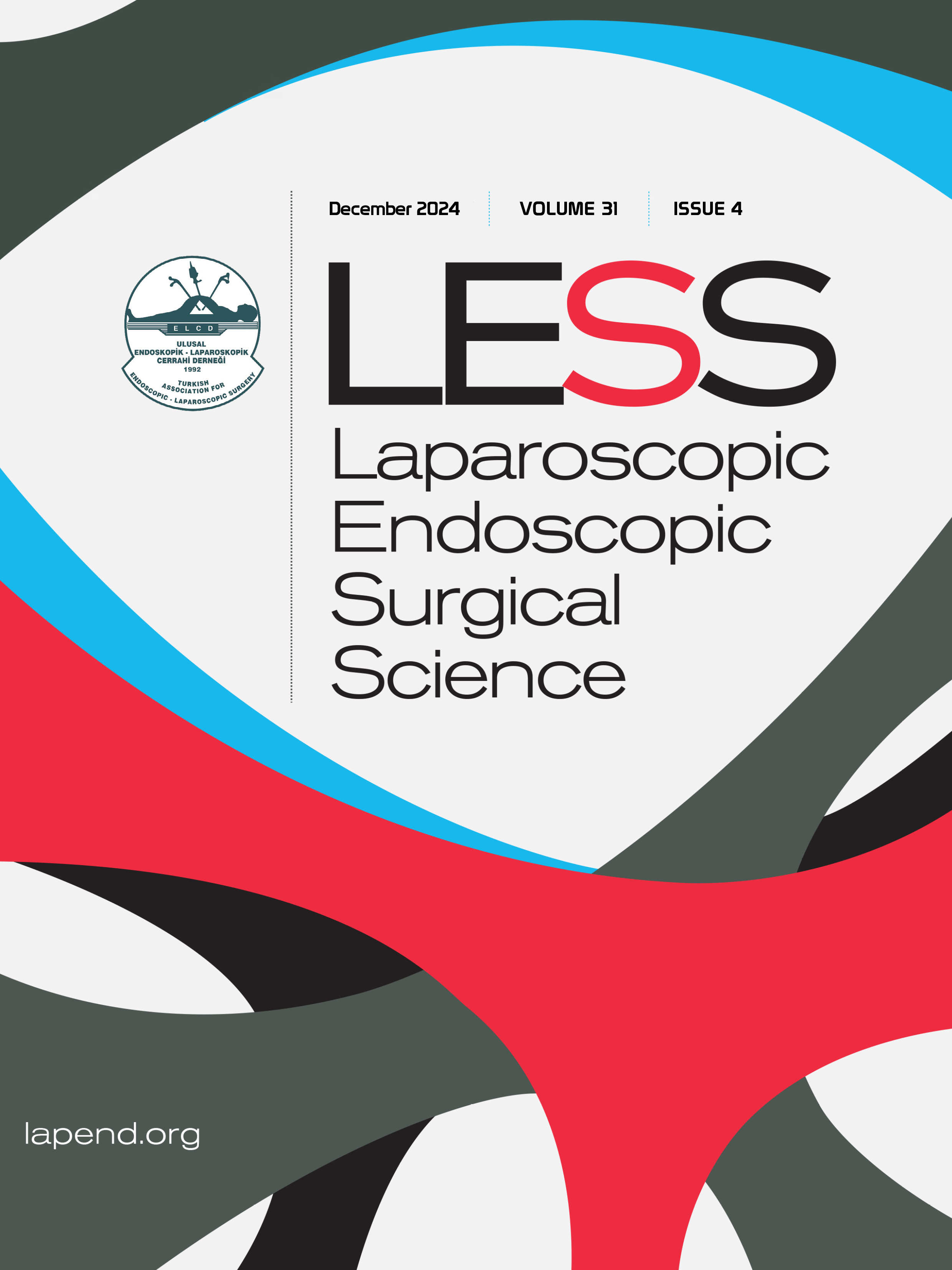Effects of different trocar numbers on oxidative stress in laparoscopic cholecystectomy
Cağrı Tiryaki1, Ali Çiftçi1, Murat Burc Yazıcıoğlu1, Fatma Ceyla Eraldemir2, Osman Civil1, Abdullah Güneş1, Gizem Fırtına11Department of General Surgery, University of Health Science, Kocaeli Derince Training and Research Hospital, Kocaeli, Turkey2Department of Biochemistry, Kocaeli University Faculty of Medicine, Kocaeli, Turkey
INTRODUCTION: Increase in intra-abdominal pressure during pneumoperitoneum (Pp), and inflation-deflation, which cause splanchnic ischemia-reperfusion (I/R), are the reasons for oxidative stress in LS. However, not only Pp and I/R but also surgical trauma has an effect on oxidative stress. This study aims to discuss the number of trocar entry effects on oxidative stress as a surgical trauma in LS.
METHODS: Patients were divided into two groups; three-port cholecystectomy (group 1, n=20) and four-port cholecystectomy (group 2, n=20). All patients venous blood samples were taken three times; preoperatively, postoperative 6th and 24th hours for study Malondialdehyde (MDA) and advanced oxidation protein products (AOPP) to evaluate oxidative stress.
RESULTS: There was no statistically significant difference between the two groups. However, a statically significant difference was observed in MDA levels between preoperative and PO six hours, and duration of operation (p=0.001).
DISCUSSION AND CONCLUSION: In our study, the findings showed that laparoscopic cholecystectomy (LC) can be performed safely with three or four trocars, and a similar oxidative response was observed in both groups. Surgical trauma that arises from trocar entry (3 or 4-trocar) did not change the oxidative stress response in our patients.
Manuscript Language: English















